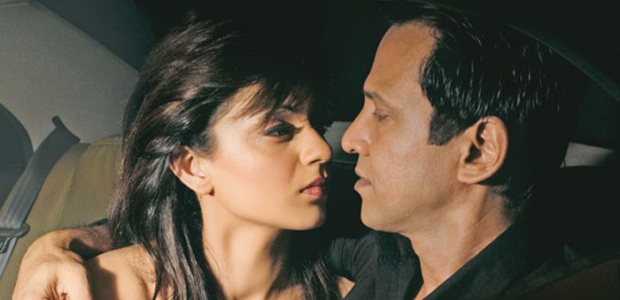With one movie, Anurag Basu rose quite high in my books as a director to look out for. Gangster was in many ways a complete movie for an Indian Movie audience and one of the best features of last year. Expectantly, Life in a… Metro was highly anticipated, especially with the movie repeating most of Basu cast & crew and a few more welcome actors. Basu sits right on top of the breed of Bhatt-nurtured directors who, if nothing else, have always made movies distinctly different from regular Bollywood fare.
Life in a… Metro is an amalgamation of six stories between nine characters from one suburb. These stories entwine and intersect at various points to portray personal lives for regular middle-class suburb dwellers. Passion, Sex, Loyalty, Romance, Lust, Stress and Love become the underlying themes woven into the fabric of the movie.
Basu is not in top form here, but this could be more due to constraints of mainstream Bollywood. Visibly a bigger and a more conformist producer like UTV (Ronnie Screwwala) is not as liberal as the Bhatts with Basu. Melodrama and formula somehow creep in and take over the final act of the movie in a complete departure of style from the rest of the movie. Apart from this major gripe, Basu deftly handles interspersing between stories and fleshing out his characters. Adultery becomes a major theme in most of the stories, but moral questions are neither raised nor ignored. Events are simply depicted “as is”, letting the viewer judge for him/herself of their moral implications. That extra-marital affairs and sex-for-favors exist is taken as fact rather than implied, tabboo’d or endorsed. Rather, the effect of it on individuals is depicted differently and quite aptly. Among the troupe of (mostly) wonderful actors, Kay Kay Menon thunders ahead portraying a selfish and chauvinistic husband and boss. Any scenes with him are the highlights of the movie proving again beyond doubt how wonderful an actor he is, regardless of the character he plays. Yet, for the genuinety of him you are left wanting to see more of him on screen than the limited screen time the director could afford. Complementing him in a parallel story is Irrfan, an equally gifted actor, playing a passionate and philosophical middle-age single guy looking for an ideal wife through matrimonial ads. Sprinkle around them a host of characters to support their stories, and you have a wonderful ensemble that is as true to the setup of the movie as any. Shiney Ahuja and Kanga Ranaut play easy parts but their talents are used only to a minimum. Dharmendra, Nafisa Ali, Sharman Joshi and Konkona Sen Sharma play regulars. Exception: Shilpa Shetty. Her character and performance are so out of this movie that you wonder if she walked into the wrong movie set with a different script. Shamelessly flaunting her star status and new-found celebrity, she proves yet again that being and “Actor” and a “Movie Star” are not mutually inclusive.
Basu’s association with Pritam continues to produce some really good music. The movie’s music is more of a soundtrack with a single musical theme in all the tracks. Basu also has the three-member band appear throughout the movie in-between and during scenes. These band members are part of the crowd, or drifters singing the tracks that are sprinkled through the movie. A high-end concept for Indian Cinema, and one that works for me completely.
Although the climax reaches levels of extreme campyness, it is easy to forgive the director for the battle he fights with only a few others on his side against Bollywood conventionalism. Yet, after the powerful Gangster, Basu’s latest is a step down. For his and our sake, I wish him back to the Bhatts.
Rating: 




